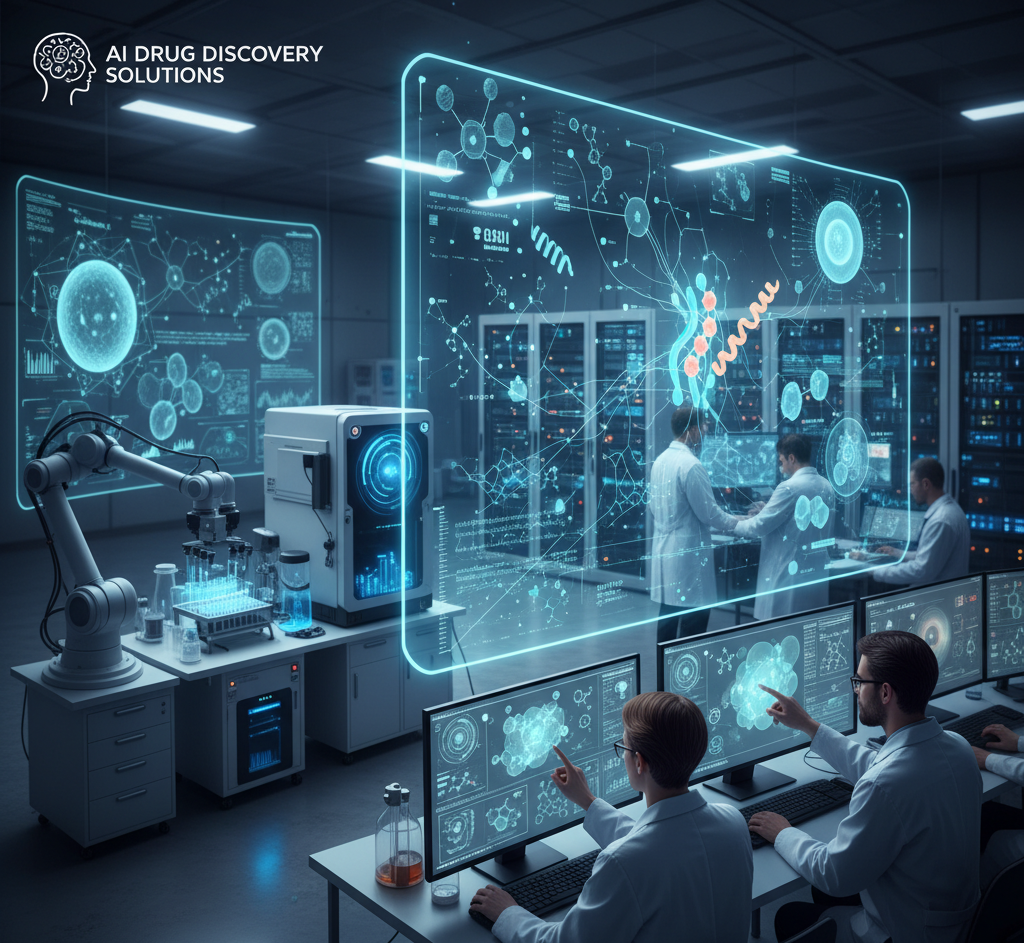
Accelerating Innovation: AI‑Driven Drug Discovery
Harnessing cutting‑edge artificial intelligence to find, optimize and deliver new therapies faster and smarter.
Drug discovery is one of the most complex, time‑consuming and costly endeavors in healthcare. With the explosion of data—from genomics to chemical libraries, traditional methods alone are no longer enough. AI framework transforms how we identify targets, design molecules, predict outcomes and bring treatments closer to patients.
Why Traditional Drug Discovery Needs a Re‑Think
Bringing a new drug to market can take a decade or more and cost billions. The failure rate remains very high: many candidate molecules drop out due to lack of efficacy, safety issues or manufacturing problems. Vast chemical space and complex biological systems make finding the “right” molecule difficult. AI (machine learning, deep learning, generative models) offers new ways of analyzing large datasets, predicting molecule‑behavior, designing novel compounds, repurposing drugs, and optimizing the discovery pipeline.
AI Framework for Drug Discovery
- Target Identification & Validation – Use AI/ML to analyze omics data, literature, and clinical data to uncover novel disease targets.
- Molecule Generation & Virtual Screening – Generative models design molecules de novo or suggest modifications to known molecules.
- Lead Optimization – AI models help optimize lead molecules for potency, selectivity, and ADMET properties.
- Synthesis & Lab‑Ready Design – AI predicts synthetic feasibility, ensuring molecules can be made in a lab.
- Pre‑clinical & Clinical Support – AI supports trial design, patient stratification, biomarker discovery, and monitoring safety/efficacy.
- Iterative Learning & Feedback Loop – Experimental data feed back into the AI models to continuously improve.
Key Benefits
- Speed & Efficiency
- Higher Precision
- Cost Reduction
- Innovation
Challenges & Considerations
AI models depend on data quality. Biases and incomplete datasets can affect performance. Therapies must comply with rigorous safety, ethical and regulatory standards. Interpretability and integration with lab workflows remain critical challenges.
Future Outlook
As generative AI, large‑language‑models, multimodal data and robotics merge, drug discovery is transforming. Future AI systems will design personalized medicines, access novel chemical spaces, and tackle undruggable targets.

